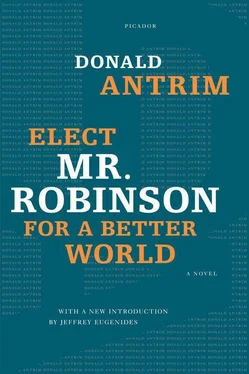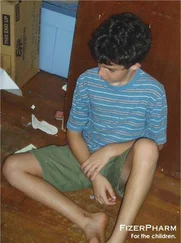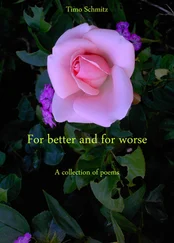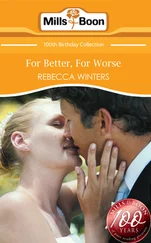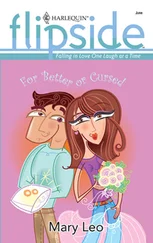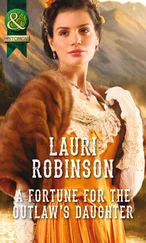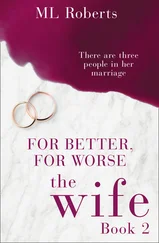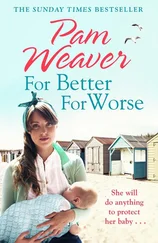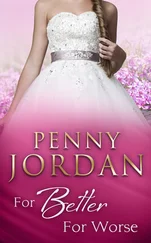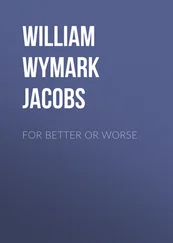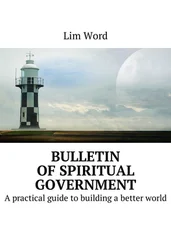Ben pushed open the garden’s rickety bamboo gates. He made a courteous “after you” hand gesture. He said, “This is the place where my father died.”
He walked into the garden. Gravel crunched under his feet. A few yards beyond the gateway was a bench, one of those elegant, narrow stone benches, and beside the bench a tree that appeared to be a diminutive variety of cherry. All the trees in this garden had botanical markers driven into the ground beside them, featuring common and taxonomic names, indigenous regions, roles in agronomy, medicinal uses, and so forth. This one wore short branches with delicate, lacy leaves. Ben stood beneath the leaves. He was turned away from me. Shadows and moonlight dappled him. He whispered, “It was night. It was after a rain. Dad was lying on this bench. His clothes were wet. I said, Dad. He didn’t answer.”
He stared down at the bench. He was remembering, envisioning his father’s body. I, too, considered that empty bench, its fine gray contours, those graceful rhomboid legs. The seat looked soft, like a cot. It seemed like a comfortable place to rest. Its polished surface captured night’s silver incandescence; the whole bench seemed to glow.
Ben’s voice cracked. “Dad’s eyes were closed, but he wasn’t sleeping.”
He was sobbing. Soft muffled whimpers rising from a deep place. I told him, “It’s okay, man.” Little by little his crying grew louder. Then we were both crying, and the world beyond the borders of the park seemed far away. I said, “Ben, I’m so sorry.” And realized, saying it, that I did in fact feel, in a vague, hard-to-pinpoint way, responsible. But for what? Ben’s father’s death? That was absurd. Or was it? Perhaps I had been wrong, the week previous, perhaps I had been wrong to bury Jim Kunkel’s foot. What good was a foot? Stronger medicine was needed to cleanse this tainted grove. The heart! If only I’d buried the heart.
“It’s my fault, Mr. Robinson. I let Dad out of my sight. We promised to look after each other. We promised. We promised .” He was wailing, a bottomless wailing the likes of which is seldom heard. It was thrilling to be in the company of that sound. I raised the tail of my shirt and blew my nose as Ben wept, “While there’s a Benson left alive I won’t leave this park. That was my vow to Dad.”
He rested his hand on his gun. His fingers caressed the butt of the holstered weapon.
“Violence won’t solve anything, Ben.”
“Bullshit, Mr. Robinson.”
I didn’t bother to argue. How could I? In classroom lectures on the medieval Inquisition I’d made the point over and over again that we are all, each and every one of us, heirs to a legacy of blood and grief. Ben’s commitment to kill his father’s killers was nothing less than testament to this inheritance. Ben Webster had once been one of my favorite pupils. Now he stood before me, lean and stripped down to fighting weight.
“Ben, my home school is scheduled to start tomorrow morning. How would you feel about guest-teaching an elective course in wilderness survival?”
“Me?”
“Think about it. I’m sure it would mean a lot to the kids. You could even lead a field trip here in the park, if you wanted.”
His sobbing was diminishing now, becoming gradually quieter. Apparently the teaching gig intrigued him. I said to him, and truly meant this, “Ben, take it from me, you’ll be a natural.”
Then, to make him feel better, I told him, “You know, Ben, certain ancient cultures believed that the souls of the dead rise up and inhabit a tree. The Christian myth of the resurrection is a sophisticated monotheistic variation on this. Now take this cherry tree here by the bench. Some people — and who is to doubt another’s faith, right? — some people would say that maybe, just maybe, your father is in that tree.”
“In the tree?”
“Yes, in the tree.” I went over and placed my hand on a level, shoulder-high bough. I patted the bough and smiled good-naturedly, “Chuck, if you’re in there, I just want you to know that an awful lot of people care an awful lot about you, especially your son.”
Ben looked at me with a glassy expression. He told me he wasn’t sure how he felt about any of this, about his father being in the tree; it sounded strange to him. Besides which, he went on to explain, his dad was buried a good distance away from the cherry tree. Ben pointed, “Over there. By the brook.”
“Is there a tree over there? Strictly speaking, it needn’t be a tree. Your dad could be in a bush or the flowers or even a blade of grass. Or if he’s near the brook he might be in one of those goldfish.”
“There aren’t any goldfish. I ate them.”
“Then I guess he’s in you, isn’t he?”
The boy wore a stricken look. I backpedaled, saying, “Heh heh, just kidding. Don’t take things so seriously. It was only an idea. Anyway, it’s getting late and I’ve got a long walk ahead of me.”
“Mr. Robinson?”
“Yeah, Ben?”
“Do you believe that stuff about trees and flowers and fish and all?”
Good question. I explained to Ben that, in this instance, my beliefs were of secondary importance, except as a compliment or contrast to his, whatever they might be, vis-à-vis the whole “spirit afterlife” issue. I also pointed out to Ben that, whatever his personal convictions in the matter, it so happens that many societies, around the globe and throughout history, have regarded enclosed gardens like this one, the one we were standing in, as sacrosanct. “Your father’s around here somewhere, Ben. You can bet on it.”
With that I took my leave. Halfway up the hill to the abandoned playground, I turned and looked back. The moon was high. I could see, by its silvery light, the entire Japanese garden: the brook, the walkways, the decorative pagoda; and, not far from the garden’s bamboo gates, hard by the glowing bench, the figure of Ben, hugging the cherry tree, weeping. I decided, then and there, that I’d come back here soon and bury, as a symbol of the lifeblood that passes from fathers to their sons, the ex-mayor’s freezer-paper-wrapped heart. Not, though, without first thawing it out and letting the kids in school pass it around. Jim’s vital organs would make splendid show-and-tell exhibits. Maybe not the genitals. The genitals would serve better in a high school setting. But Jim’s liver, lung, spleen, hand, and assorted viscera — that stuff would be super at any age. I got so revved up, planning the classes I could build around Jim’s anatomy, that I completely forgot the dangers of walking through Turtle Pond Park. I was relaxed and happy, excited about the future, eager to get home and tell Meredith all about my encounter with Ben, how I’d been able to make him feel a little better about his loss. Also, I wanted to make love without contraception, because spending time with Ben had made me imagine how great it would be to have a son of my own, a son who would kill for me, and whom I’d name Ben. And while jogging past the boathouse and into the dense woods, I pictured all the things we’d do together, my son Ben and I, the ball games we’d play and the bikes we’d ride and the fish we’d catch. These father/son tableaux images looked beautiful to me. So beautiful, in fact, that it began to seem inconceivable that Meredith would be anything but wildly enthusiastic about the idea of a son. Certainly she’d share my desire to have sex without contraception, wherever we happened to be at the moment: on the kitchen floor, or on a table or the counter by the sink basin, or on the fold-out sleeper sofa in the living room; or how about out back in the wet sandy mud by the trench! Or just plain in bed, beneath soft cotton sheets, nice and easy, in order to conceive right away.
Читать дальше
